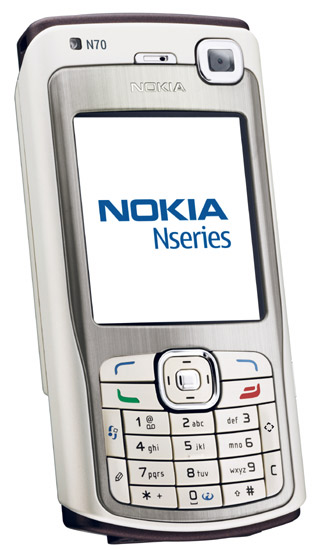PDAs are dying. This has been fairly well known for a while, of course, but there are plenty of people with a vested interest in keeping the PDA alive, not least companies like Palm and HP, whose product ranges were centred around standalone PDAs, handheld computers with no built-in telephony. And magazines like Palmtop User and PDA Essentials (both of which I write for), in the UK. But the manufacturers and publishers have all had to embrace smartphones and the move to all-in-one devices, with Palm buying back Handspring and recentring themselves around the Treo line, with HP doing the same with its new range of devices, and with both Palmtop User and PDA Essentials, despite their names, having to include more and more smartphone content.
 Psion saw all this coming back in 1998, of course, when they brought the likes of Nokia and Ericsson in on a joint venture, Symbian, merging traditional PDA/palmtop technology with mobile phone telephony. And the rest is, more or less, history. Starting out on this path a good two or three years ahead of the competition, Symbian have around 60% market share (worldwide, mobile devices) and, despite Windows Mobile gaining momentum, it's hard to see Microsoft catching Symbian up for a long, long time.
Psion saw all this coming back in 1998, of course, when they brought the likes of Nokia and Ericsson in on a joint venture, Symbian, merging traditional PDA/palmtop technology with mobile phone telephony. And the rest is, more or less, history. Starting out on this path a good two or three years ahead of the competition, Symbian have around 60% market share (worldwide, mobile devices) and, despite Windows Mobile gaining momentum, it's hard to see Microsoft catching Symbian up for a long, long time.
And yes, before all the die-hards start emailing in, there are always some people for whom a two-box solution (i.e. PDA and phone) is going to work out better. But for the vast majority of people, including me, switching to a single mobile device means that you just can't go back. It's simply more convenient and more elegant.
Now, developing applications and games for a smartphone is very, very different from developing for a PDA. And I'm not talking about the interface, with keypad instead of touch-screen, or the (usually) smaller screen resolution. A PDA is standalone, by definition. Yes, you might link it via Bluetooth to a mobile phone and set up a data connection, but on the whole there are no surprises. You drive the PDA and things happen more or less when you want them to.
On the smartphone, it's a whole new ball game. For a start, there are lots more things going on in the operating system, behind the scenes, servers keeping track of what's happening on your mobile network and of all kinds of frighteningly techy stuff that you really don't need to know. Then there are incoming phone calls, text and picture messages to handle, plus incoming email, if you're set up for background retrieval or 'push' email. You've possibly also got a GPRS or 3G data connection going a lot of the time anyway, with an RSS newsreader or mobile web news page or even an Instant Messaging session going.
All at the same time. And on top of all this, there are your applications, both those built by the OS maker (Symbian or Microsoft) and the manufacturer (Nokia etc.), and the third party 'add on' programs that we all love to peruse and download. But whereas on the PDA, applications could hog the processor, be frivolous with memory and generally lock everything else out (after all, you're only going to be doing one thing at a time), on the smartphone they've got to be very much better behaved.
At any point the application or game could be interrupted by a phone call or other notification, and allowance also has to be made for the other 'real time' tasks going on in the background, the operations that keep the smartphone going. And things are going to be even tighter in the future, with Symbian's EKA2 kernel, enabling (essentially) a 'smartphone on a chip'. Throw a badly programmed game onto that and the core OS will probably keep going (Symbian OS is pretty stable, after all), but there's going to be impact on a lot of the other background programs.
Unfortunately, at the same time as this clarion call for well-behaved software, we're seeing a rush of (mainly) games, ported quickly across from other mobile platforms, without much thought for their behaviour in a multi-tasking environment. It's not enough to sort out the stylus-to-keypad interface, or to scale the graphics down a little. What's needed is for developers to roll their sleeves up and graft, learning about programs under a smartphone OS and making sure their software is nice and polite.
There are other factors, of course, such as the industry's love of Java (J2ME) mini-applications - in theory a great idea but in practice a major cause of user problems because of the huge amount of RAM that they gobble up. And I'm not going to veer off into malware, another hobby horse of mine...
If you're a developer, please note, if you haven't already, that porting your game to Symbian OS is going to take a little hard work. But it'll be worth it. You'll get better reviews, less support queries and better sales. Take my word for it.
